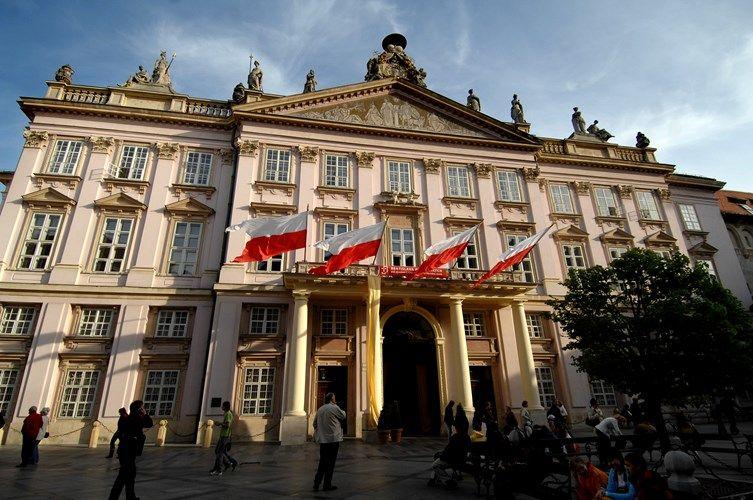News from the March meeting of Bratislava City Council
23. 03. 2023
4 minutes read
Bratislava, 23 March 2023 - The city approved a budget for 2023 to 2025. The budget was approved by the city's MPs at their March meeting. This year, the local government will manage €607.5 million. The budget is affected by the impact of the pandemic, high inflation, government decisions and the war in Ukraine. The city's MPs also approved the creation of a new contributory organisation, the Bratislava Service Centre, aimed at sharing selected services for municipal organisations, which will streamline the operation of individual organisations and secure savings in the millions. The City Council also considered the information on the development of the urban planning study entitled Solution of the Central Development Line of Petržalka.

Bratislava's approved budget 2023-2025
The city has a balanced budget of €607.5 million. However, the budgeting process has been affected by government decisions that have deprived the city of €55 million, by a number of obligations that have been transferred to local governments, and also by inflation. In the light of these decisions, Bratislava will not be able to avoid restrictive measures, either. Bratislava, like other municipalities in Slovakia, is only able to cope with the negative effects and revenue shortfalls by further cutting back on its own operations, reducing projects and services and increasing its other revenues, i.e., by increasing the amounts of various charges. Better tax collection and an increase in the accommodation tax, which will rise by 64%, are envisaged. Also, charges in senior homes (last adjusted in 2011), tuition fees in primary art schools (2016), Marianum fees (2012), admission fees to sports venues and the city's cultural institutions will increase by approximately 25% on average. As a result, Bratislava will receive €3.7 million for the operation of essential services and infrastructure. Depending on the projected fulfilment, the inflation situation and the government's approach, the city may also have to consider adjusting public transport fares, waste collection and property taxes. From a development perspective, the local government will focus on the basic maintenance and service standards that have the greatest impact on the quality of life in the city. The aim is to implement and finalise ongoing projects, in particular related to transport, public infrastructure, public spaces, the environment and better maintenance of the city. Social justice, culture and sports infrastructure are also a priority.
A new form of cooperation with municipal organisations is about to start
Bratislava will have a new contributory organisation: - the city's MPs have approved the creation of the Bratislava Centre of Services (BCS). The new organisation will relieve individual city organisations of the burden of the agenda which they have to carry out but for which they lack sufficient capacity, time or resources. It will gradually provide support in eight specific areas that are essential for the operation of city organisations, e.g. IT services, public procurement, legal services, economics and finance, and HR and payroll services. The aim is to professionalise these activities, achieving better value for money and savings. Over the next few years, savings of more than €8 million are expected. This will enable the representatives of municipal organisations to concentrate on providing quality municipal services to the citizens. The ramp-up of the new organisation will be incremental; following testing and a pilot phase, we expect the new organisation to be fully operational in 2026. Bratislava has developed the Petržalka Line Urban Study
After an extensive four-year participation with residents, Bratislava City Council has adopted the final form of the Urban Study of the Central Development Line of Petržalka. The current zoning plan has allowed for construction in the area for years. The aim of the study was to lay the foundation for a new regulation of development of the said area, to support the natural character of the area around Chorvátské rameno (the Croatian Arm), to develop the potential of the area, to introduce new services and public spaces, giving precedence to public transport and cycling. The study follows up on the project of extending the tram line, which will run along the Croatian Arm, and also addresses the demands of the residents, who by a petition from 2013 demanded removal of the four-lane road, envisaged in the original master plan. From the outset, the development was carried out with the general public involved, and included questionnaires, thematic walks, and discussions of proposals with petition committees. Hundreds of entities were involved in the commenting process and the city processed a total of 3,435 submissions. The result is the largest urban planning study that has been developed in such detail within the territory of independent Slovakia. The clean copy of the study proposed to increase the proportion of green space in the area to 44%, while the proposed buildings are to occupy only 7% of the area, which is less than permitted by the various codes in the current zoning plan. The next step will be to start the procurement of spatial planning documents, in which the public will again have the opportunity to comment.